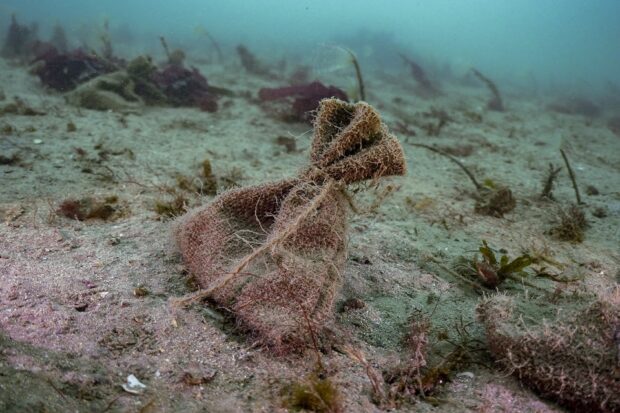
On Saturday (26th March 2022), Natural England announced that England’s largest ever seagrass restoration project reached a new milestone.
This received coverage in Business Green and The Paradise News. The project has also recently been reported on in Countryfile magazine.
The £2.5 million Life Recreation ReMEDIES partnership led by Natural England, has now planted around 70,000 seed bags spanning 3.5 hectares of seabed.
Habitats such as seagrass meadows, mangroves and tidal marshes have essential carbon capture abilities. Seagrass can be as effective at absorbing and storing carbon as our woodlands.
However, seagrasses and the UK seabed are threatened by a variety of factors, from seagrass wasting disease (SWD) to pollution and physical disturbance from activities such as the anchoring, launching and mooring of leisure boats. Natural England are working in partnership with organisations such as the Ocean Conservation Trust to tackle these pressures, and the project aims to plant eight hectares of seagrass in total.
Tony Juniper, Chair of Natural England, said:
Seagrasses are a precious part of our marine ecosystem, providing a habitat for a wide variety of species from juvenile fish to our seahorse populations. They are an essential mechanism for carbon capture and a healthy marine environment.
Seagrasses are vital but they are also very delicate. With their existence threatened by disease, pollution, and human activity, we must all work together to support the recovery of seagrasses – and harness their power to combat climate change and restore our natural environment.
Mark Parry, Development Officer at the Ocean Conservation Trust, said:
Seagrass meadows are one of the most valuable and biodiverse habitats on the planet. By restoring seagrass, we are ensuring they will continue to provide vital environmental benefits to both people and the planet.
We are very proud to be the restoration lead in this project and are grateful for communities in both Plymouth and the Solent volunteering their time to help us restore such an important habitat.
The project, covering five Special Areas of Conservation in Southern England, involves surveying and mapping seagrass beds to help inform recreational marine users; undertaking studies to better understand how these recreational activities impact seagrass; and introducing voluntary No-Anchor Zones. Advanced Mooring Systems are also being trialled, which are designed to interact less with the seabed.
Later this year, sea dives are due to take place at healthy seagrass meadows in the Solent and Cornwall to collect seagrass seeds.
3 comments
Comment by Mrs Carla Marks posted on
As far as I am aware, many houseboats and canal boats are still allowed to discharge dirty and contaminated water/sewage into the waterways and the sea.
As a cold water swimmer one can often smell this ,especially on the outgoing tide. We have a large community of Houseboats and Sea craft in our region.
Comment by William Hughes-Games posted on
Another move you might consider is to re-establish oyster reefs of the genus Sacostrea. This type of oyster is inter-tidal and has a great wave moderating ability.
Comment by John W. Baxter posted on
What a pity that ourshipping companies, not unlike our water companies are still not discouraged financially from dumping untreated bilge into our coastal waters........I am sure the removal of such out of date practises from our way of life will encourage more people to bathe at home rather than seek so called pristine venues to pollute elsewhere in the world.